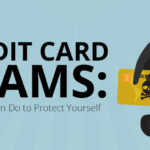U.S. household debt continues rising as many Americans still struggle with the effects of inflation and rising interest rates. According to the most recent Quarterly Report on Household Debt and Credit, the American household debt level reached a whopping $16.51 trillion as of the third quarter of 2022—a 2.2% increase from the second quarter. This is $2.36 trillion higher than the pre-pandemic U.S. household debt at the end of 2019.
Rising household debt, while mostly comprised of home mortgages, shows no signs of easing up. Credit cards, student loans, and auto loans still make up a large number, although delinquencies are not nearly as high as they were in the last quarter of 2019.
While mortgages are sometimes, “good debt,” if they are affordable and a good investment, credit card debt is never desirable. According to the report, credit card balances showed a $38 billion increase compared to the second quarter of 2022; a 15% year-over-year increase marked the largest in over 20 years.
Unfortunately, a large portion of American consumers get in over their heads with credit card debt. Many are more vulnerable to debt due to a lack of savings, financial education, and money management skills. This type of information is needed to overcome unforeseen financial hardships like a job loss or medical emergency. When faced with this and other unexpected expenses like a new refrigerator or furnace, most will turn to credit cards to get over the financial hump.
As credit card debt piles up, you might be unaware of where this accumulation of debt is leading. If you do not act accordingly and in a timely manner, you could face limited options when it comes to paying off your debt. One tried and true method is a debt consolidation loan—either through a personal loan, a bank or finance company, or a home equity loan.
People Also Read
Types of debt consolidation loans
Debt consolidation loans generally package all your debt into one loan with one monthly payment. They generally have a lower interest rate than what you’re currently paying on your credit card and other debt accounts.
By reducing the interest you pay, you can create additional cash flow to better manage day-to-day expenses. This will help keep you from depending on credit cards just to get by. The fact is, using another credit card to pay off existing debt is the worst possible scenario.
The right debt relief option for you is dependent upon your individual circumstances, such as credit score and loan size, as well as whether you have sufficient home equity.
Home equity lines of credit (HELOC) are commonly used to consolidate debt. Quite simply, it is an approved line of credit up to a certain amount, which you can borrow against when it’s needed. Similar to a credit card, you only pay interest on the amount you use.
You can use the money drawn off a home equity line of credit for any purpose. The low-interest rate and minimal closing costs usually offered by banks and mortgage companies make these loans attractive. If you’re a homeowner with a good amount of equity in your home and an acceptable credit score, you would be a good candidate for a HELOC.
A home refinance with cash out is another type of mortgage loan. In this instance, you refinance your current mortgage with a new interest rate and new terms. Then borrow additional funds on top of your previous mortgage amount to pay off your other debts. Again, you’ll need to have an acceptable credit score, a good amount of equity in your homes, and be gainfully employed.
A personal loan is a third way for you to consolidate your debts. Banks typically issue unsecured personal loans, meaning there is nothing put up as collateral against the loan, such as a mortgage note. Personal loans require very good credit and generally are not ideal if you have a large amount of debt. Banks have traditionally instituted lending caps on personal loans, and while interest rates are good, the terms are usually short. These loans are ideal if you are looking to pay off your debt quickly.
Pros of a debt consolidation loan
A debt consolidation loan can help you get back on the right financial track. Below are five advantages to consolidating your debts:
1. One payment
For many people, the biggest advantage of debt consolidation is simplifying their financial landscape. By reducing all their monthly payments into one, they feel they have a better path to becoming debt free. In addition, only having one payment reduces the chances of missing a payment, making a late payment, or incurring late fees.
Additionally, only having to deal with one creditor eliminates the need to juggle multiple creditors with varying interest rates. This can simplify the process and reduce the stress associated with debt.
2. Lower payment overall
By obtaining a lower interest rate and a longer term, the payments required on a monthly basis are much less than what you are currently paying. With this extra monthly cash flow, you can deposit the extra funds into an emergency account. By creating this type of account and contributing to it on a regular basis, you can avoid relying on a credit card in the event of an unexpected expense.
3. Better interest rate
If market conditions are favorable, there is a good chance you can refinance your mortgage at a lower interest rate. In addition, you can swap your credit card for a lower interest rate or call your credit card company and request a rate reduction. As more of your money goes toward paying the principal balance, you can pay off your loans quicker and for less money.
4. Get caught up
If you are struggling to keep up with your payments or you have fallen behind, you can get a fresh start through debt consolidation. Taking a break from the stress of making multiple payments to multiple creditors is sometimes enough to put you back on the road to good financial management. If you’re struggling every month and having a difficult time making ends meet, this type of loan can get you back on your feet.
5. Avoid damage to your credit
If you’ve been struggling for some time with debt and have missed or made late payments, you can avoid further damage to your credit by having your debt consolidated. The quicker the better, as missed and late payments can affect your ability to qualify and hurt your credit score. Your credit score can quickly recover from a late payment here or there, but an established history of inconsistent payments can hurt your eligibility for new credit.
Cons of a debt consolidation loan
There are some very good upsides to taking out a debt consolidation loan. However, some potential drawbacks exist that you should be aware of before taking this important step.
1. High closing costs
Many mortgage-based debt consolidation solutions such as a home refinance with cash out can carry significant closing costs. These can often run into thousands of dollars and add significantly to the balance of your new loan. You have the option of paying these fees upfront but if you’re looking to consolidate your debt, you probably won’t have this kind of cash lying around.
2. You could end up running up more debt
If you aren’t committed to making the debt consolidation process work due to a lack of spending discipline, the chances are slim that you’ll suddenly stop racking up debt—which will only make your situation more critical. It’s important that you close your credit card accounts and change your spending habits to avoid putting yourself and your finances in an even worse situation.
3. You pay more interest over the long term
If you choose to tap into the equity in your home, there is a good chance you could pay more interest over the life of the loan. Mortgage notes usually have long terms, typically 30 years. Even though the interest rate is much lower than that of your credit cards, you could pay more interest in the end because you will be paying off your balance for a much longer term.
4. You don’t learn the hard lessons
When you put in the hard work of paying off your debts through sacrifice and determination, you’ll probably learn a valuable lesson along the way. Your chances of falling back into debt are slim compared to those who have essentially swept their debt under the rug through other methods that simply let you borrow more money.
5. You put valuable assets at risk
When you roll your credit card debt into your home mortgage, you are essentially putting your home at risk if you don’t keep up with your monthly payments. The lender “secures” your debt with the property to protect themselves if you default on the loan. They have the right to sell your house to collect what you owe.
When the pros outweigh the cons
Debt consolidation can be a good solution if have good credit and the discipline to make monthly payments. Working with a debt relief company such as National Debt Relief can help you determine the best solution to settle your debts with your creditors and get back to living your good life.









